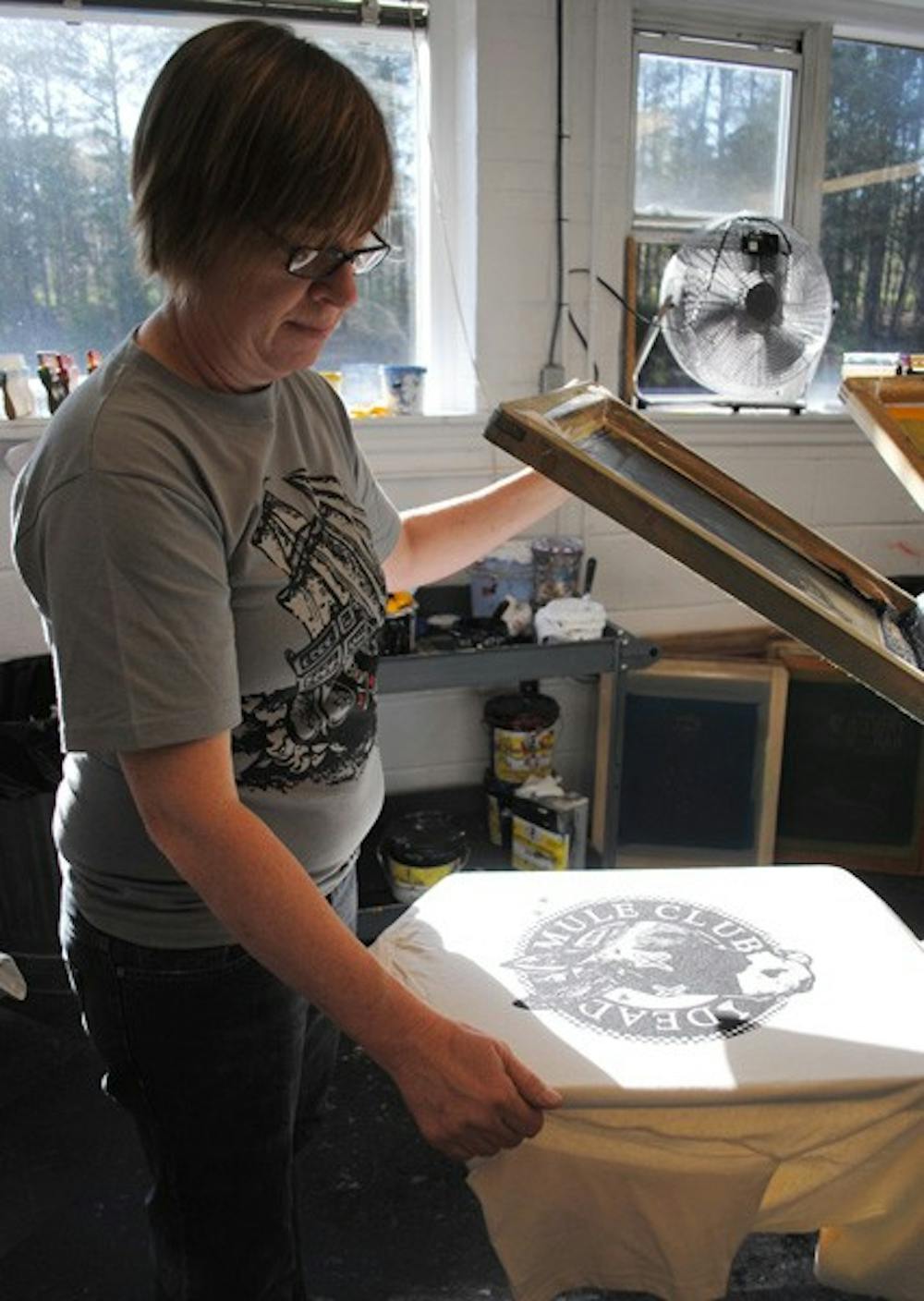When Jody Cedzidlo graduated from UNC, she never imagined she would make a living using the screen printing skills she learned in class.
After graduation, she worked several jobs and starting working part-time in a local print shop, gradually getting more hours and responsibilities.
After three years, Cedzidlo started Flytrap, a design label specializing in screen printed apparel.
Screen printing, a technique in which ink is forced through stencils and a woven mesh, can be used to print designs on a variety of materials including paper, textiles and wood.
She asked Routlette Vintage in Carrboro to sell clothes she made.
“I couldn’t believe how many I sold in the first month,” Cedzidlo said.
Local screen printers like Cedzidlo are sharing their art with thousands of people—and making a living at it.
Flytrap
Cedzidlo said Flytrap uses a unique process to print clothing.
Most screen prints use Plastisol, a durable plastic ink that often sits on top of the material.
For Flytrap’s products, transparent layers of acrylic ink are applied and washed to produce a softer print.
“After the ink dries I wash the shirt to remove some of the ink on purpose,” Cedzidlo said.
Bread and Butter
Bread and Butter is a custom screen printing company in Chapel Hill.
Though she did screen printing as an art major, store owner Melanie Wall said commercial printing is very different.
“The art process for an individual is very ego-laden. For an art business you have to take yourself out,” Wall said. “It’s more of a collaboration.”
Wall bought Bread and Butter in 1992.
“It’s satisfying work if you like the process. Some people would find it to be monotonous and repetitive. I find it to be almost meditative,” Wall said.
The Printery
Other screen printers maintain a focus on local service.
Founded in 1893 to print The Daily Tar Heel, The Printery has since sold its offset printing division, and now specializes in screen printing and embroidery.
“We do all hands-on, manual printing. It gives us the opportunity to be creative,” said co-owner Sarah Hammond.
Advice to students
Wall and Cedzidlo cautioned prospective arts entrepreneurs to anticipate working hard and to follow strict organizational and administrative practices.
“Anyone who owns a business should be prepared to work very hard at it,” Wall said.
Cedzidlo said even though screen printing is a creative business, it’s important to do everything by the book.
“I read all of these brochures about what to expect in your first year of business. I didn’t think they’d apply to me. Everything they said turned out to be true,” she said.
Even in this job market, it is possible to find an arts-related career, Wall said.
“There’s the potential for creativity. There’s hope.”
Contact the Arts Editor at artsdesk@unc.edu
Chapel Hill screen printers mix art, business

Melanie Wall, of Bread and Butter Screen Printing, prints a “Dead Mule Club” T-shirt at her shop in Chapel Hill on Wednesday.



